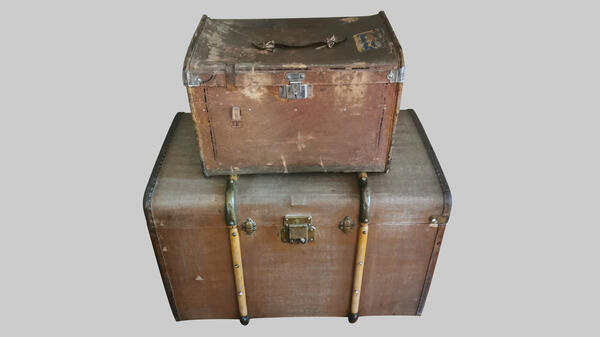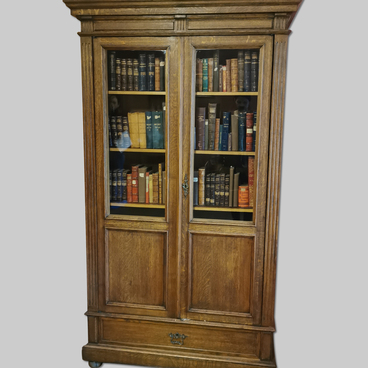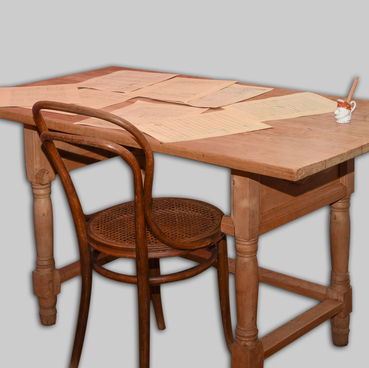Pyotr Tchaikovsky’s entire life was full of travel and relocations. He left his home in Votkinsk at the age of eight: the family moved to Moscow, where his father was offered a good job, which, however, he never got. The Tchaikovskys went to live with their relatives in St. Petersburg, and then to Alapayevsk — their father’s new duty station.
Two years later, Pyotr Tchaikovsky went to study in St. Petersburg. At the age of 25, when he finished his studies, Tchaikovsky moved to Moscow to become a professor at the Moscow Conservatory. He spent 11 years in Moscow, but even there, he was constantly switching apartments.
Having left the conservatory, Tchaikovsky was traveling across Europe for eight years. The spent the longest time in Italy, France and Switzerland. Throughout the years of traveling, his only native retreat was the house of his sister Alexandra in Ukraine, which he visited almost every summer. His brothers also came there.
Over the years, Tchaikovsky was getting tired of wandering, he wanted ‘to feel like home at least somewhere’. At the age of 45, he decided to settle down in the small town of Klin near Moscow. At different times, Tchaikovsky rented three different houses around Klin — he never managed to save up to buy his own place. But even having found a permanent residence in his last house, which has now become the composer’s museum, Tchaikovsky continued to travel all the time.
Tchaikovsky went to so many concerts, that in one and a half years he rented the house in Klin, he spent ten months on the road and only eight months at home. However, the hustle and bustle of tours abroad were very tiring for the composer; he enjoyed spending time alone and always longed for solitude, returning to Klin with great pleasure.
At the age of 47, Tchaikovsky started performing as a conductor. Due to the illness of Ippolit Altani, who was supposed to conduct the opera Cherevichki, the composer who did not want to postpone the premiere decided to replace him. That performance marked the start of regular concerts both in Russia and abroad. In 1891, the composer went to America: he was invited to the opening of Carnegie Hall.
Tchaikovsky’s last trip abroad was his trip to England in 1893. That’s where he received the honorary title of the Doctor of Music from the University of Cambridge, along with composers Camille Saint-Saëns and Edvard Grieg.
Two years later, Pyotr Tchaikovsky went to study in St. Petersburg. At the age of 25, when he finished his studies, Tchaikovsky moved to Moscow to become a professor at the Moscow Conservatory. He spent 11 years in Moscow, but even there, he was constantly switching apartments.
Having left the conservatory, Tchaikovsky was traveling across Europe for eight years. The spent the longest time in Italy, France and Switzerland. Throughout the years of traveling, his only native retreat was the house of his sister Alexandra in Ukraine, which he visited almost every summer. His brothers also came there.
Over the years, Tchaikovsky was getting tired of wandering, he wanted ‘to feel like home at least somewhere’. At the age of 45, he decided to settle down in the small town of Klin near Moscow. At different times, Tchaikovsky rented three different houses around Klin — he never managed to save up to buy his own place. But even having found a permanent residence in his last house, which has now become the composer’s museum, Tchaikovsky continued to travel all the time.
Tchaikovsky went to so many concerts, that in one and a half years he rented the house in Klin, he spent ten months on the road and only eight months at home. However, the hustle and bustle of tours abroad were very tiring for the composer; he enjoyed spending time alone and always longed for solitude, returning to Klin with great pleasure.
At the age of 47, Tchaikovsky started performing as a conductor. Due to the illness of Ippolit Altani, who was supposed to conduct the opera Cherevichki, the composer who did not want to postpone the premiere decided to replace him. That performance marked the start of regular concerts both in Russia and abroad. In 1891, the composer went to America: he was invited to the opening of Carnegie Hall.
Tchaikovsky’s last trip abroad was his trip to England in 1893. That’s where he received the honorary title of the Doctor of Music from the University of Cambridge, along with composers Camille Saint-Saëns and Edvard Grieg.



